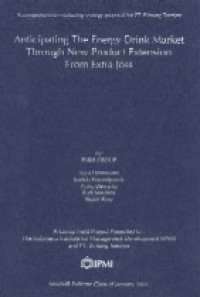
Financial Sourcing: A NGO`s Key Strategy to Deliver Quality Services: a case of world vision Indonesia
| Gmd : Text
| Availability :
| 00000009831 | 108 | (GFP) | Available - Ada |
Increasing of Non-Governmental Organization's (NGO) role on development will continue since the NGOs are viewed by development experts having distinctive competence in their ability to promote more equitable and participatory models of development. Yet, there are increasing concerns with the operations of NGO, concentrating on how well they spend government and public funds. It is also a fact that there is a strong competition among NGOs in tapping the funding from the donors, public or other financial sources. This competition shapes NGO's strategy in generating its funding.
An NGO always faces a conflict between meeting the needs of its clients and the objectives of its funding sources. These two main stakeholders do not always have parallel objectives and very often have conflicting interests. They may have similar objectives, but they do have different ways or strategy to achieve those objectives. Mediating the needs and objectives of the clients and the donors is a challenging task for NGOs. In addition, each financial source has different characteristic and dynamics in terms of growth or shrinkage in volume. While other factors, such as ideology, history and experiences, contribute to NGO functioning, the proportions of funds
used from the diverse sources will significantly shape and steer what an NGO is, how it operates and what is achieves. Each funding source or donor develops its own criteria and projects objectives that would be obstacles or opportunities for each NGO.
This paper is developed to address a fundamental problem of NGO experienced by World Vision Indonesia (WVI) in raising their financial resources. The objectives of this paper are to identify the financial sources available for World Vision and examine their advantages and disadvantages in accomplishing its mission and objectives. Since there are so many alternative financial sources available in the market place, this paper will only explore the major ones which currently provide a significant amount of fund or will be a potential source in the future i.e., general public fund and official aid.
There are reasonable grounds to estimate that general public fund and official aid would increase significantly in the future. If the past growth rate is maintained, general public fund will be in the order of US$ 8 billion in the year 2000. The similar amount would be available for official aid. Indonesia, and other Asia Pacific countries, would be a potential growth of general public fund because of the economic rapid development in this region.
However, the amount of funds available is not the only one factor for NGO like World Vision to determine its financial sources since the quality of services depends on the characteristic of funding sources i.e., flexibility, self-governance, risk, sustainability, and cost. Our analysis revealed that general public fund has several comparative advantages i.e., more flexible, higher autonomy, lower risk and more sustainable fund, while official aid requires high accountability and quality output oriented which demands World Vision to be more professional and provides opportunities to manage larger scale of project and carry out macro interventions.
We recommend that World Vision Indonesia should continue and stress its funding sources from general public fund, especially in Indonesia by developing a long-term marketing strategy focusing on public awareness to enable World Vision Indonesia to take advantages of economic growth in the country. World Vision Indonesia should continue to tap official aid as it would be a perfect complementary resource to public fund. Yet, WVI has to limit amount of official aid to maintain its autonomy and independence.
Research Location: World Vision Indonesia
Supervisor:
Accepted: [1996]
| Series Title |
-
|
|---|---|
| Call Number |
108
|
| Publisher Place | Jakarta |
| Collation |
iv, 45p. : figs., tabs.,; 27 cm.
|
| Language |
English
|
| ISBN/ISSN |
-
|
| Classification |
-
|
| Media Type |
-
|
|---|---|
| Carrier Type |
-
|
| Edition |
-
|
| Subject(s) | |
| Specific Info |
-
|
| Statement |
-
|
| Content Type |
-
|
No other version available







